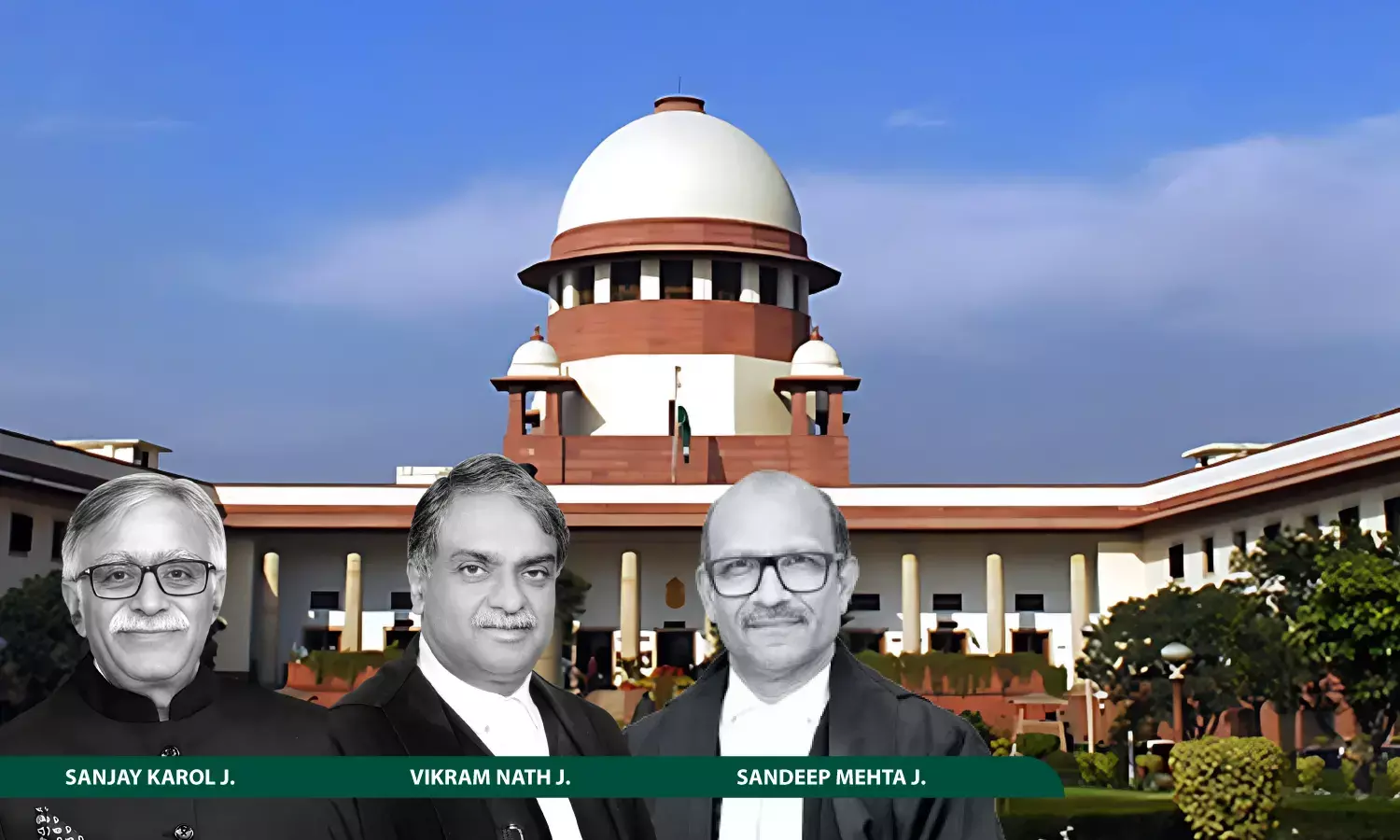Lived Separate Lives For Over A Decade, Complete Absence Of Marital Ties: Supreme Court Dissolves Marriage Invoking Power Under Article 142 Of Constitution
The Appeal before the Apex Court was filed against the judgment of the Jharkhand High Court affirming the judgment of the Family Court dismissing the husband's petition for dissolution of marriage.

The Supreme Court invoked its power under Article 142 of the Constitution and dissolved the marriage of a couple, citing the fact that they lived separately for over a decade and there was a complete absence of marital ties.
The Appeal before the Apex Court was filed against the judgment of the Jharkhand High Court whereby the appellant/husband’s appeal was dismissed, affirming the judgment of the Family Court dismissing the appellant’s petition for dissolution of marriage under Sections 13(1)(ia) and (iii) of the Hindu Marriage Act, 1955.
The 3-Judge Bench of Justice Vikram Nath, Justice Sanjay Karol and Justice Saneep Mehta said,“The parties have lived separate lives for over a decade, and there is a complete absence of marital ties. In our considered view, continuing such a marriage would only perpetuate hardship and serve no useful purpose. This is a fit case for exercise of this Court’s jurisdiction under Article 142 of the Constitution of India to do complete justice and dissolve the marriage on the ground of irretrievable breakdown.”
Factual Background
The marriage between the appellant and the respondent was solemnised in 2012. Two children were born out of the said wedlock. Thereafter, in 2014, the appellant instituted a petition under Sections 13(1)(ia) and (iii) of the HMA before the Family Court, Ranchi, seeking a decree of divorce. At the time of filing the suit, the respondent was pregnant with their second child. Subsequently, the respondent filed a Complaint alleging mental and physical cruelty against the appellant and his parents, invoking provisions of Section 498A of the Indian Penal Code, 1860 and Sections 3 and 4 of the Dowry Prohibition Act, 1961. The respondent gave birth to their second child, who was diagnosed with cerebral palsy.
The Family Court dismissed the appellant’s petition for divorce. Aggrieved, the appellant preferred the First Appeal before the High Court. The High Court, by the impugned judgment, dismissed the appeal, holding that since the parties cohabited until March 2014, the allegations of cruelty made prior thereto could not be sustained, particularly in view of the fact that the second child was born in November 2014. Aggrieved thereby, the appellant approached the Apex Court.
Reasoning
On a perusal of the facts fo the case, the Bench noted that the marriage had completely and irrevocably broken down. Multiple attempts at reconciliation through mediation had failed. Neither party had shown any willingness or inclination to restore the marital bond.
Even though the respondent mother had neither filed nor pursued any formal petition for custody or visitation of the elder daughter, the Bench was of the view that, in the peculiar facts and circumstances of this case, she ought not to be deprived of access to her daughter. “Depriving the mother of all contact would not only cause emotional harm to her but may also adversely impact the child. In the interest of justice, equity, and the welfare of the child, we deem it appropriate to grant visitation rights to the respondent so that she may gradually rebuild a bond with her daughter. This way the daughter will also be blessed with the love, affection and guidance from her mother”, it held.
Thus, the Bench directed that the respondent shall be entitled to visitation rights with her daughter on two days each month. The parties have been asked to mutually fix convenient dates each month, on which the respondent may visit the child at the appellant’s residence and spend quality time with her.
Allowing the appeal, the Bench held that the marriage between the appellant and the respondent would stand dissolved under Article 142 of the Constitution of India on the ground of irretrievable breakdown of marriage. “The respondent shall be entitled to visitation in the terms set forth above”, it concluded.
Cause Title: ABC v. XYZ (Neutral Citation: 2025 INSC 543)

